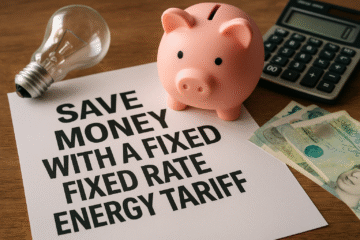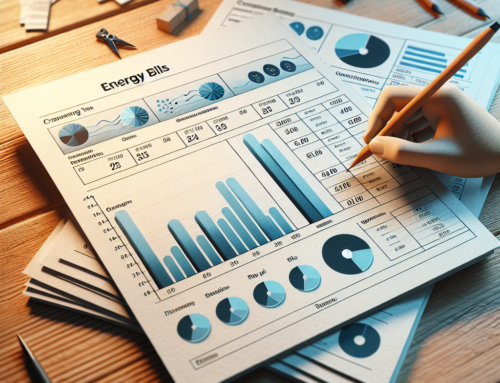Understanding your energy usage is the first step in managing your energy costs effectively. By knowing how much energy you use and when you use it, you can identify areas where you can make changes to reduce your consumption and ultimately save money. Start by looking at your energy bills over the past year to get an idea of your average usage. You can also use smart meters to track your energy usage in real-time, allowing you to see which appliances or activities are using the most energy. Once you have a clear understanding of your energy usage, you can start making changes to reduce your consumption, such as using energy-efficient appliances, improving insulation, and being more mindful of your energy usage habits.
Another important aspect of understanding your energy usage is knowing the different types of energy tariffs available to you. This includes standard variable tariffs, fixed-rate tariffs, and time-of-use tariffs. Each of these tariffs has its own advantages and disadvantages, so it's important to understand how they work and which one is best suited to your energy usage patterns. By understanding your energy usage and the different tariffs available, you can make informed decisions about which tariff and supplier is best for you.
Comparing Tariffs and Suppliers
Once you have a good understanding of your energy usage, it's time to start comparing tariffs and suppliers to find the best deal for your needs. There are a wide variety of energy suppliers in the market, each offering different tariffs and prices. It's important to compare these options to ensure you're getting the best deal for your energy usage. When comparing tariffs and suppliers, consider not only the price per unit of energy but also any additional fees or charges that may apply. Some suppliers may offer discounts for paying by direct debit or for signing up for a dual fuel tariff, so be sure to take these into account when comparing options.
In addition to comparing prices, it's also important to consider the customer service and reputation of the suppliers you're considering. Look for reviews and ratings from other customers to get an idea of how well each supplier treats its customers. You may also want to consider the environmental impact of the energy supplied by each supplier, as some may offer renewable energy options or have a commitment to reducing their carbon footprint. By comparing tariffs and suppliers, you can find the best deal for your energy needs while also supporting a supplier that aligns with your values.
Utilizing Price Comparison Websites
Price comparison websites can be a valuable tool in finding the best energy deal for your needs. These websites allow you to input your energy usage and preferences, and then provide a list of tariffs and suppliers that match your criteria. This makes it easy to compare options and find the best deal without having to visit multiple supplier websites individually. When using price comparison websites, be sure to input accurate information about your energy usage and preferences to ensure the results are tailored to your needs.
It's important to note that not all suppliers may be listed on price comparison websites, so it's a good idea to use multiple websites to get a comprehensive view of the options available to you. Additionally, some suppliers may offer exclusive deals or promotions that are not listed on price comparison websites, so it's worth visiting supplier websites directly to see if there are any additional offers available. By utilizing price comparison websites, you can save time and effort in finding the best energy deal for your needs.
Considering Fixed vs Variable Tariffs
When comparing tariffs, one important decision to make is whether to opt for a fixed-rate tariff or a variable-rate tariff. Fixed-rate tariffs offer a set price per unit of energy for a specified period, usually one to three years. This means that your energy costs will remain consistent regardless of fluctuations in the energy market. On the other hand, variable-rate tariffs fluctuate with the market, meaning your energy costs could go up or down depending on market conditions.
There are pros and cons to both types of tariffs. Fixed-rate tariffs provide stability and predictability in your energy costs, making it easier to budget and plan for the future. However, if energy prices drop significantly during the fixed period, you may miss out on potential savings. Variable-rate tariffs offer the potential for savings if energy prices decrease, but they also come with the risk of increased costs if prices rise. When considering fixed vs variable tariffs, it's important to weigh the potential savings against the risk of increased costs and decide which option is best for your individual circumstances.
Exploring Government Schemes and Grants
In addition to comparing tariffs and suppliers, it's worth exploring any government schemes or grants that may be available to help reduce your energy costs. Many governments offer incentives for improving energy efficiency in homes, such as grants for installing insulation, upgrading heating systems, or installing renewable energy technologies. These schemes can help offset the upfront costs of making energy-efficient improvements and ultimately reduce your long-term energy costs.
To explore government schemes and grants, start by visiting your government's official website or speaking with a local energy advisor. They can provide information on any available schemes and help you understand the eligibility criteria and application process. It's important to take advantage of these opportunities as they can not only save you money but also contribute to reducing your carbon footprint and environmental impact.
Negotiating with Your Current Supplier
If you're happy with your current supplier but feel that you could be getting a better deal, it's worth negotiating with them before switching to a new supplier. Many suppliers are willing to negotiate on price or offer exclusive deals to retain existing customers. Start by contacting your supplier and expressing your concerns about the cost of your energy bills. You can then ask if there are any better deals or promotions available that could help reduce your costs.
When negotiating with your current supplier, it's important to be polite but firm in expressing your desire for a better deal. Be prepared to provide evidence of better offers from other suppliers to support your case. If your supplier is unwilling to offer a better deal, it may be worth considering switching to a new supplier that can offer more competitive rates.
Seeking Professional Advice from Energy Brokers
If you're feeling overwhelmed by the process of comparing tariffs and suppliers or negotiating with your current supplier, seeking professional advice from an energy broker can be a valuable option. Energy brokers are experts in the energy market and can help you navigate the complexities of finding the best deal for your needs. They can provide personalised advice based on your individual circumstances and preferences, as well as negotiate with suppliers on your behalf to secure the best possible deal.
When seeking professional advice from an energy broker, be sure to research their credentials and reputation before engaging their services. Look for brokers who are accredited by relevant industry bodies and have positive reviews from previous clients. It's also important to discuss any fees or charges associated with using an energy broker before engaging their services.
In conclusion, managing your energy costs effectively requires a combination of understanding your energy usage, comparing tariffs and suppliers, utilising price comparison websites, considering fixed vs variable tariffs, exploring government schemes and grants, negotiating with your current supplier, and seeking professional advice from energy brokers. By taking these steps, you can find the best energy deal for your needs while also reducing your environmental impact and saving money in the long run.






